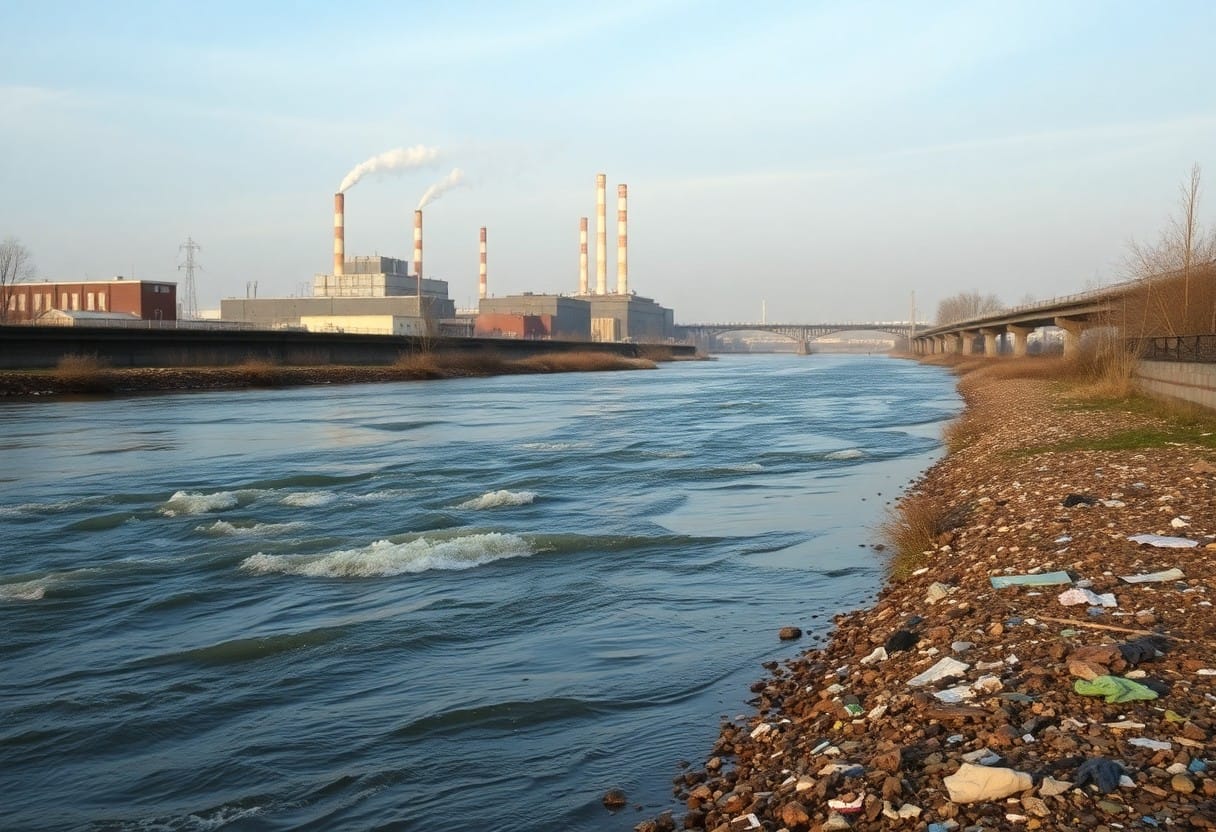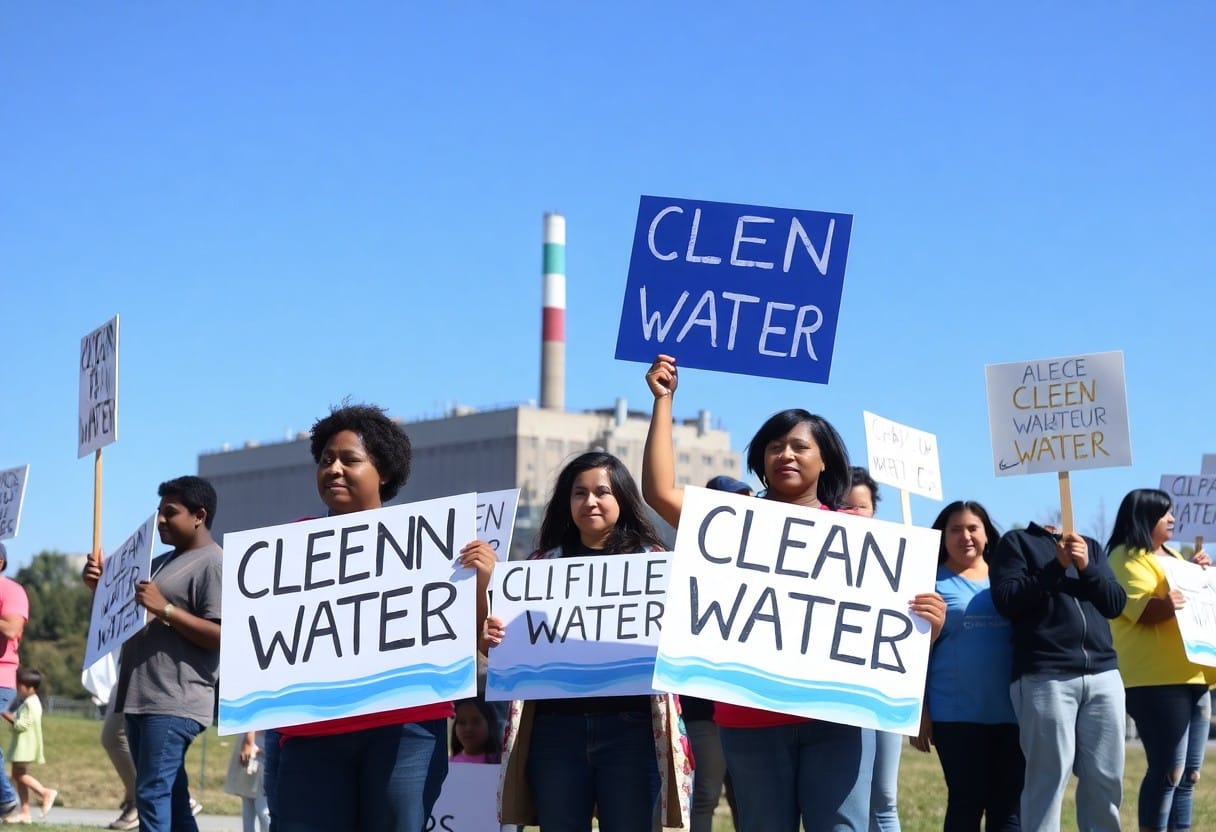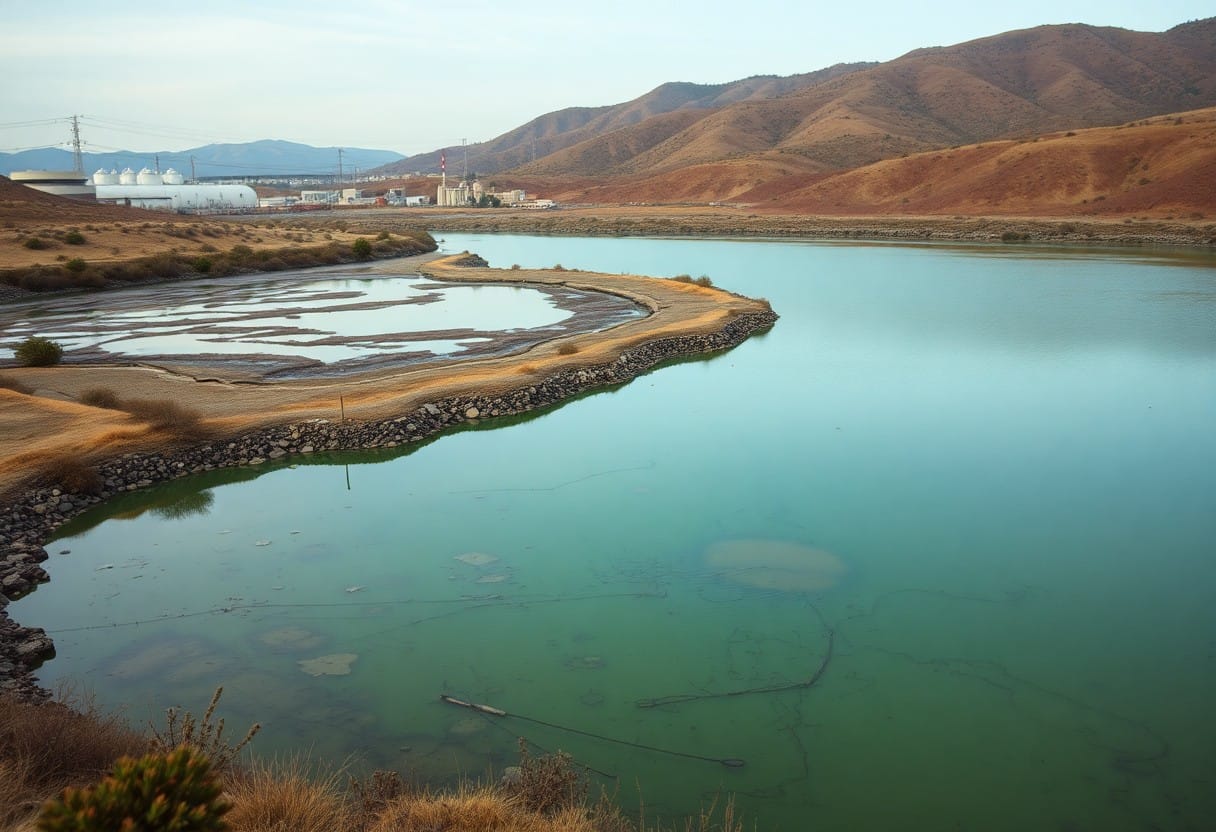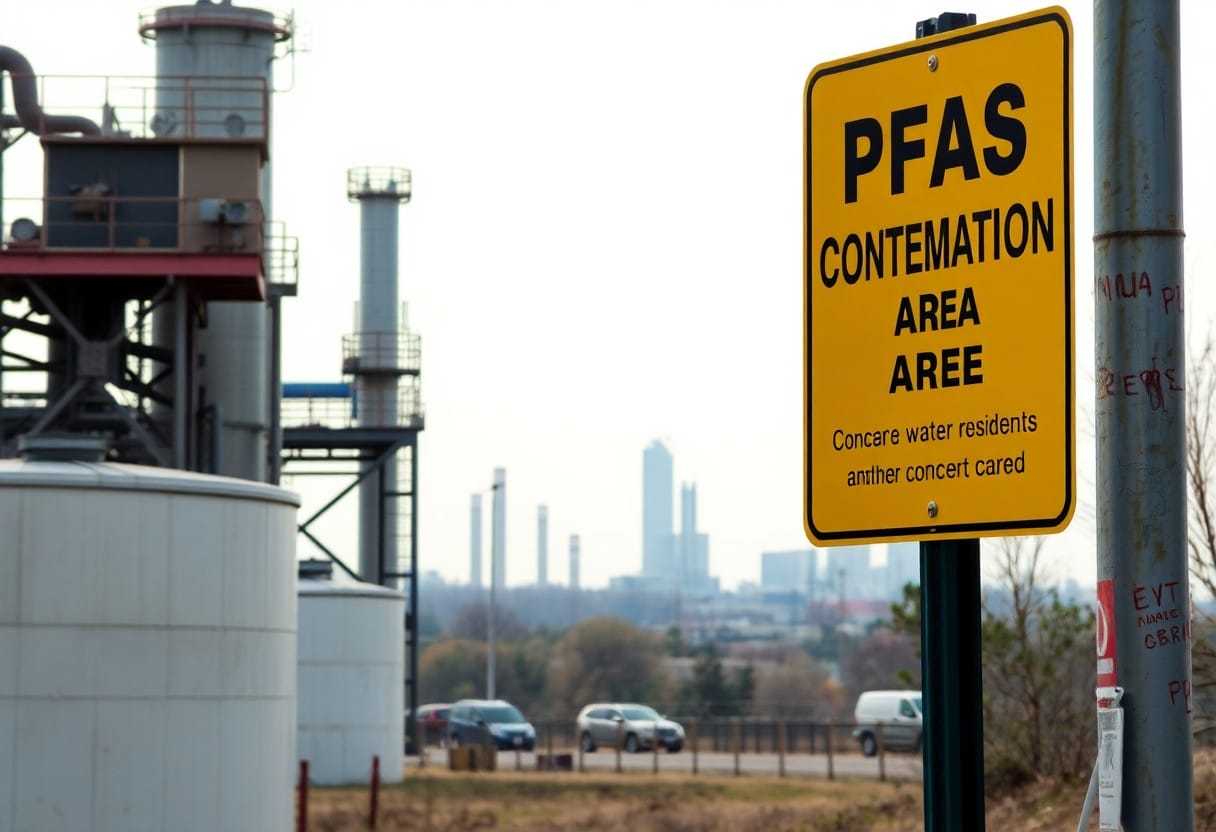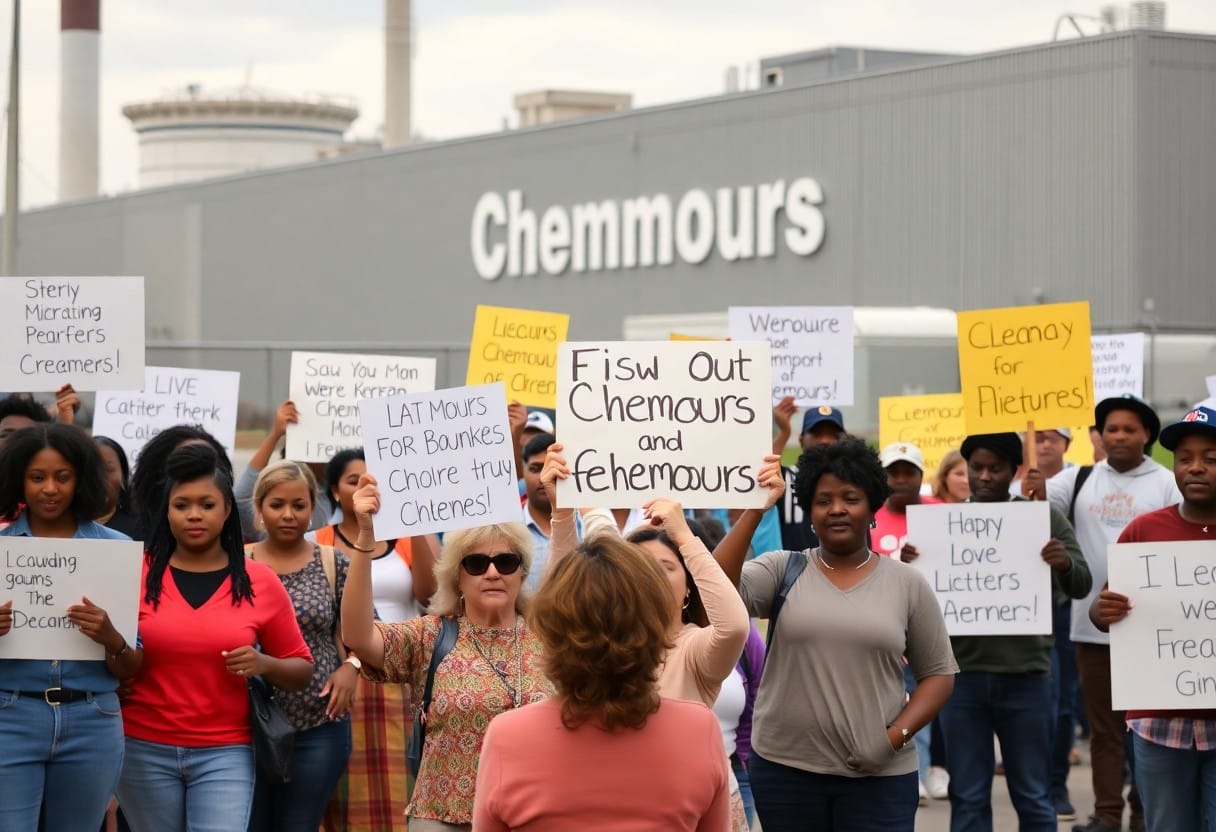You have a right to be informed about the environmental impact of Chemours’ operations in Fayetteville. This ongoing chemical crisis has raised significant concerns about water contamination and public health risks. As residents, you deserve transparent answers about how these chemicals affect your community and the steps being taken to ensure safety. In this post, we will explore the details of the crisis, discuss the implications for your health and environment, and emphasize the importance of accountability for chemical companies operating in your area.
Overview of Chemours and Its Operations
For over a century, Chemours has established itself as a prominent player in the chemical industry, specializing in the production of various materials and chemical solutions. Your engagement with Chemours will uncover the intricacies of their operations, spanning multiple sectors such as advanced materials, fluoroproducts, and chemical solutions, all of which significantly influence both the economy and the environment.
History of Chemours in Fayetteville
Across its timeline, Chemours has been deeply rooted in Fayetteville, North Carolina, where it began operations in the early 2000s. This regional presence has made Chemours a significant contributor to the local economy, yet it has also raised questions regarding its environmental stewardship and the ramifications of its industrial activities on your community.
Chemical Products and Environmental Impact
Between the various chemical products produced by Chemours, some have raised environmental concerns, particularly related to the potential contamination of air and water sources. You may find it alarming that certain byproducts can lead to health risks for residents and wildlife alike.
Hence, the impact of Chemours’ operations extends beyond mere economics; it can affect public health and the environment. For example, the production of fluorinated chemicals has been linked to water contamination, potentially leading to serious health implications for you and your neighbors. Additionally, the use of harmful chemicals can threaten local ecosystems, reflecting the need for accountability and transparent communication. Understanding these factors is crucial for you to advocate for a healthier, safer Fayetteville.

The Chemical Contamination Issue
You have likely heard about the troubling contamination affecting Fayetteville, stemming from Chemours’ operations. This issue has raised significant concerns regarding the safety of your water supply, air quality, and overall community well-being. As residents, you deserve clear and transparent answers about the extent of the chemical contamination and its implications for your health and environment.
Background of the Crisis
Crisis began when elevated levels of harmful chemicals, particularly per- and poly-fluoroalkyl substances (PFAS), were detected in the soil and waterways surrounding Chemours’ facility. This alarming discovery prompted widespread fear among residents and fueled demands for accountability. You may be wondering how this crisis unfolded and what measures are being taken to address it.
Impact on Local Communities and Ecosystems
On the affected regions, local communities and natural ecosystems are suffering significant consequences of chemical contamination. The presence of PFAS in your water and soil poses serious health risks, while wildlife habitats are disrupted, further threatening biodiversity and ecosystem stability.
Contamination from Chemours has severely impacted both human health and local ecosystems. Many residents are experiencing potential health issues, such as increased cancer risks and other chronic illnesses. Additionally, wildlife in nearby habitats is facing dangerous levels of toxic exposure, diminishing biodiversity and disrupting food chains. You might feel the pressure to advocate for better monitoring and remediation efforts, creating an urgent dialogue around safety measures and community health initiatives.
Regulatory Responses and Investigations
Any serious chemical crisis demands prompt regulatory responses and thorough investigations. Following the incidents in Fayetteville, various government agencies have stepped up to assess the situation, engaging in monitoring programs and mandating transparency from Chemours. These actions aim to hold the corporation accountable while ensuring that community concerns are addressed, shedding light on the extent of the damage caused and the steps needed for remediation.
Government Involvement and Accountability
By enhancing regulatory scrutiny, local and federal authorities are working to ensure that accountability is upheld. The involvement of agencies such as the Environmental Protection Agency (EPA) and state regulators reflects a commitment to protecting your community from potential hazards. This collaboration aims to foster trust and clarity, ensuring that you receive accurate information regarding safety and environmental impact.
Current Status of Legal Actions
Accountability for Chemours is being pursued through various legal channels as affected residents seek justice. Current lawsuits allege significant environmental contamination and demand accountability for the corporate actions that contributed to the crisis. The outcomes of these legal challenges will play a key role in shaping future regulations and ensuring that your community is adequately compensated and protected from similar situations.
For instance, several lawsuits currently in progress aim to address the damage inflicted on local water supplies and public health. Affected residents are seeking substantial compensatory and punitive damages, aiming to hold Chemours accountable for their role in environmental degradation. These ongoing legal actions are critical, as they will not only influence your community’s recovery but also set a precedent for how similar cases will be handled nationwide.
Community Reactions and Advocacy
Your concerns about the chemical crisis have ignited a wave of advocacy among Fayetteville residents. Many community members are uniting to demand greater transparency from Chemours and government agencies. As the impact of the contamination deepens, people are increasingly vocal about their need for clear information regarding health risks and environmental safety.
Local Resident Concerns
The health and well-being of residents have become paramount as fears grow over the long-term effects of chemical exposure. Many neighbors are expressing worries about possible disruptions to their daily lives and the legacy of pollution left behind. With limited communication from Chemours, residents feel vulnerable and anxious about their families’ futures.
Efforts for Transparency and Accountability
Above all, community members are seeking answers and action regarding the chemical contamination. Activists are organizing town hall meetings, leveraging social media, and contacting elected officials to stress the importance of open communication and responsible oversight of Chemours’ operations. Many believe that only through persistent advocacy can they ensure accountability and protect their community.
Community voices are rising in unison to highlight the necessity of government action and corporate accountability. Local advocacy groups are focused on forming coalitions to demand comprehensive health studies and environmental assessments. By standing together, you can push for a more transparent relationship with Chemours, holding the company accountable for any environmental damage it has caused. Your involvement is key to fostering a safe and healthy environment for everyone in Fayetteville.
The Role of Environmental Organizations
Despite the ongoing challenges posed by Chemours’ chemical emissions, environmental organizations play a vital role in advocating for transparency and accountability. These groups work tirelessly to inform you about potential health risks and push for regulations that prioritize community safety. By amplifying the voices of concerned residents, they ensure that your concerns are heard and that effective actions are taken to protect your environment.
Advocacy for Health and Safety
Across various platforms, environmental organizations champion initiatives aimed at safeguarding your health and promoting safety standards. They engage with public officials and the community to demand rigorous testing, stricter regulations, and timely information about chemical exposures that could affect your well-being.
Collaboration with Local Communities
With a focus on grassroots efforts, environmental organizations join forces with local communities to foster awareness and drive change. They help you build networks of support, equipping you with the tools and resources necessary to address the challenges posed by chemical pollution.
Environmental organizations play an vital role in strengthening your community’s response to chemical threats. They provide educational resources about the impacts of pollution and promote community-led initiatives for clean-up and safety. By encouraging community participation, these organizations not only empower you to take action but also drive meaningful change in addressing the chemical crisis. Your active involvement can influence local policy and improve environmental conditions, ensuring a healthier future for you and your neighbors.
Future Implications for Fayetteville
Once again, community concerns surrounding Chemours’ operations have prompted you to seek clarity and accountability. As highlighted in FROM THE EDITOR: Chemours CEO’s words were slap in …, the ramifications of this crisis extend beyond immediate health risks. Fayetteville deserves transparent answers regarding its future, especially as new information emerges about environmental and economic impacts.
Potential Long-term Environmental Effects
Behind Chemours’ chemical crisis lies a significant concern about lasting environmental degradation. You may find that contaminated water and soil could have repercussions that affect the community’s health for generations. These pollutants can infiltrate ecosystems, disrupting local wildlife and impacting biodiversity long after immediate remediation efforts.
Economic Consequences for the Region
Behind the environmental issues, Chemours’ actions threaten the economic fabric of Fayetteville. With potential job losses and decreased property values, many businesses may reconsider their investments in the area. This crisis leaves you questioning the stability of your local economy and whether it can fully recover.
The ongoing situation has created a climate of uncertainty that can directly impact Fayetteville’s economic future. You should be aware that many local businesses fear decreased consumer confidence, which may lead to diminished sales and fewer job opportunities. Furthermore, the potential for increased healthcare costs due to exposure issues could strain families financially. If not addressed properly, these factors can culminate in a detriment to your community’s overall economic viability and development prospects.
Conclusion
On the whole, it is crucial for you to seek clarity and transparency regarding the chemical crisis caused by Chemours in Fayetteville. Your health and the environment depend on accurate information and effective communication from the company. Delving into comprehensive resources, such as the Chemours-Comments—2.22.19.pdf, will empower you to understand the implications of this ongoing situation and hold accountable those responsible for safeguarding your community.



